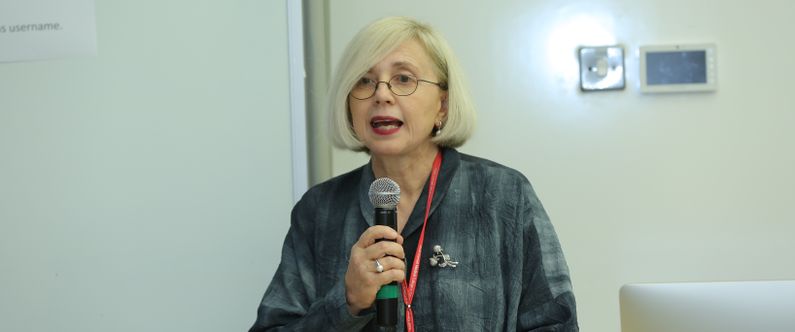WCM-Q workshop on psychiatry for the non-psychiatrist
 Dr. Aicha Hind Rifai, Assistant Professor of Clinical Psychiatry, co-directed and spoke at the event.
Dr. Aicha Hind Rifai, Assistant Professor of Clinical Psychiatry, co-directed and spoke at the event.
A review and update of the latest advice for healthcare professionals working in non-psychiatric practices who encounter patients with psychiatric conditions was offered at a specialist workshop at Weill Cornell Medicine-Qatar (WCM-Q).
The half-day event, entitled ‘Psychiatry for the Non-Psychiatrist’, was designed to equip physicians, nurses, dentists, pharmacists and allied health professionals with knowledge and skills to help them provide the best possible care to patients with psychiatric conditions who present at non-psychiatric practices.
The event consisted of four sessions delivered by three WCM-Q psychiatry professors, with each session designed to impart a different set of practical skills. Dr. Aicha Hind Rifai, assistant professor of clinical psychiatry, who co-directed the event, began proceedings with an introduction that explained the significance of attending to patients’ mental health needs in non-psychiatric settings in order to maximize patient wellbeing and prevent unfavorable health outcomes.
Dr. Rifai said: “Psychiatric conditions such as depression, anxiety, substance abuse and somatic disorders - mental health conditions related to pain or fatigue - often present alongside non-psychiatric conditions. In addition, patients with a psychiatric condition may visit a general practice for treatment, or a psychiatric condition may become known during treatment for another health complaint. In all cases it is very important that non-psychiatry professionals have the necessary skills and knowledge to recognize the presence of a psychiatric condition, provide appropriate care and refer patients to a psychiatry specialist as and when required.”
Dr. Ziad Kronfol, professor of psychiatry and event co-director, delivered a session that explained how to recognize the extent and complexities of the association between comorbitity of medical and psychiatric conditions, and recommended strategies for managing patients with comorbitites. Dr. Hassen Al-Amin, associate professor of psychiatry and event co-director, then ran a session on methods for assessing substance abuse in the non-psychiatric session. This session outlined the most common medical and psychiatric problems associated with substance abuse and outlined methods for engaging patients to seek treatment.
The event was accredited locally by the Qatar Council for Healthcare Practitioners-Accreditation Department (QCHP-AD) and internationally by the Accreditation Council for Continuing Medical Education (ACCME).
Dr. Rifai delivered the final presentation, which discussed psychosomatic disorders in the medical setting and described the recommended management of these patients. The event concluded with a panel discussion and a question and answers session during which participants were able to discus specific recommendations to address their patients’ needs for comprehensive psychiatric and medical care in the non-psychiatric setting.
Dr. Rifai added: “We were extremely pleased with the open-minded and enthusiastic approach that the participants brought to this event, and we are confident that the learning sessions have enhanced their ability to provide care to psychiatric patients that is not only appropriate and professional, but also sensitive and compassionate.”